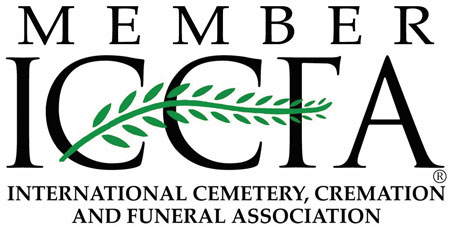No Service By Request: How a Funeral is Part of the Grieving Process

“No service by request.” It’s a line that at times appears at the end of an obituary denoting a request by a loved one that no funeral service be held after his or her death. It’s a simple four-word line that can carry serious implications for those left behind in their grief. It also brings up questions of why we celebrate birth and other significant anniversaries, but not death.
Our Kelowna funeral home recently spoke to Corinne Crockett about the importance of a ceremony after someone has died. An adjunct professor with the school of nursing at UBC Okanagan and a Central Okanagan Hospice volunteer, Corinne recently wrote on the subject in her column, New Thought, published on Castanet.
The Excuse Not to Have a Service
While some family members feel they are honouring their loved one by not having a funeral service, concerns can also arise about the expense.
“I’ve also heard some say that because most of their friends have already died, no one would come to their funeral” says Corinne.
“In my experience, honouring a person who has passed away is about supporting those who are still alive to remember. Each time I attend a service, maybe I didn’t know the person very well, but they touched my life in some way. A funeral, Celebration of Life or any other service is a way to show that this person mattered and made an impact.”
A Way Through the Process
As famed grief expert/author Alan Wolfelt once wrote: “Because grief is love’s twin, grief never ends either.”
People often suffer in silence when suppressing grief. Grief doesn’t just show up as sadness; it has many different and confusing faces. Not having a funeral service complicates a person’s ability to process grief, says Corinne.
“Not only is it important to grieve a loss, but it’s also important to receive support in that loss,” she adds.
Children can also be traumatized by death when they are suppressed or protected from acknowledging it. This suppression can translate in physical symptoms such as stomach/digestive issues, lack of sleep, decreased appetite, heaviness in the chest, and muscle tension. It can also show up emotionally as pervasive guilt, anger, or irritability as well as mentally, as forgetfulness and confusion.
“It’s not only important to have these conversations about death, but also for everyone, including children, to acknowledge that loss by being part of a service,” says Corrine. “It’s about being together and receiving support. It’s a place for giving a sense that we’ve done something to show our love for that person.”
Everyone Has a Story
After a death, loved ones can sometimes remain in what Corinne calls “a state of suspended animation,” meaning they haven’t had time to fully acknowledge the death until a funeral or ceremony takes place.
“When we join as human beings, we are able to support and encourage one another. We can have those open conversations to ask for help and be helped and engage in conversation instead of feeling alone and isolated. It’s also a time to see and hear first-hand how many people loved the deceased and to hear their stories about them.
“It helps build the puzzle of the many facets of that person’s life and what it does for us is as important. It means that all of our lives matter when we see someone else honoured. The service is that time. It’s a milestone marker of taking us off that state of suspended animation and paying our respects to a life.”
Ways to Say Goodbye
A service is a place of pausing and reflecting in our fast society. It can happen at any time and in meaningful ways, whether it’s a burial or cremation, traditional or contemporary ceremony.
With all the significant decisions that revolve after someone has died, it’s helpful to have someone support you through the process and help make all your options available.
Corrine has attended services that range from living rooms to outdoor ceremonies and says she even heard about one palliative patient who held her funeral before she passed.
“If we can individualize what it is that makes it personal and special, then that’s all that’s needed,” she says.
How To Respond When a Loved One Requests ‘No Funeral’
As Corinne explains in her column, Celebrating Death: “People have many reasons for deciding they don’t want a service held to commemorate their passing, yet it’s those left behind who often bear the burden of no service.”
Before your loved one passes, we recommend having a conversation on why a service holds meaning for your family to come together. Explain that it is a time for you to pause, reflect, remember, and to celebrate a life that meant so much to you.
Decide together on what type of service it will be —a quiet celebration with just the immediate family or a larger affair with extended family and friends.
In the end, this compromise about a service will help you and your family take that vital step through the grief process.
At Springfield Funeral Home our Memorial Care Assistants are here to help you plan every detail of your loved one’s service, including venue, celebrant, notices, reception, and catering, while always keeping in mind your wishes and budget. For more information, contact us at 250-860-7077.
Contributing Author: An invited speaker and presenter, Corinne Crockett is currently teaching smartUBC, a unique mindfulness program offered at UBC to the public.



